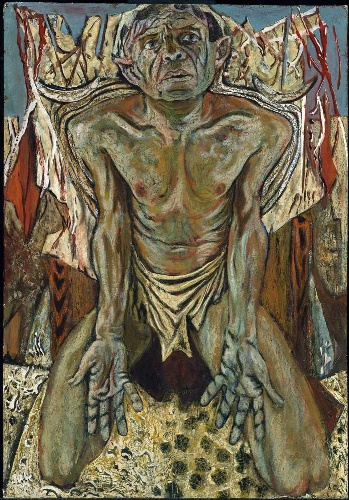Karl L. Zerbe (1903–1972) is best known today as one of the three leaders of the Boston Expressionist school, with Hyman Bloom (1913-2009) and Jack Levine (1915-2010). Unlike Bloom (who immigrated as a young boy) and Levine, who was born in Boston, Zerbe came to the United States permanently at the age of 32, in 1935. He became a U.S. citizen four years later, nevertheless retaining an identity which was partly German despite spending much of his childhood in France and suffering persecution as a young man at the hands of the Nazi government, which would perpetrate far greater horrors. With a Catholic mother and a nominally Lutheran father, Zerbe was arguably gentile and unobservant in his religious practice. But his colorful, iconographically dense works testify to his immersion in a rich cultural life and to his debt to Jewish artists such as Bloom, Levine and Chaim Soutine (1893/4–1943) and to Christian painters including Matthias Grünewald (c. 1475–1528) and Georges Rouault (1871-1958). Through his teaching at the School of the Museum of Fine Arts and Florida State University, he helped shape a generation of American painters.
%20(1).png)
%20(1).png)






